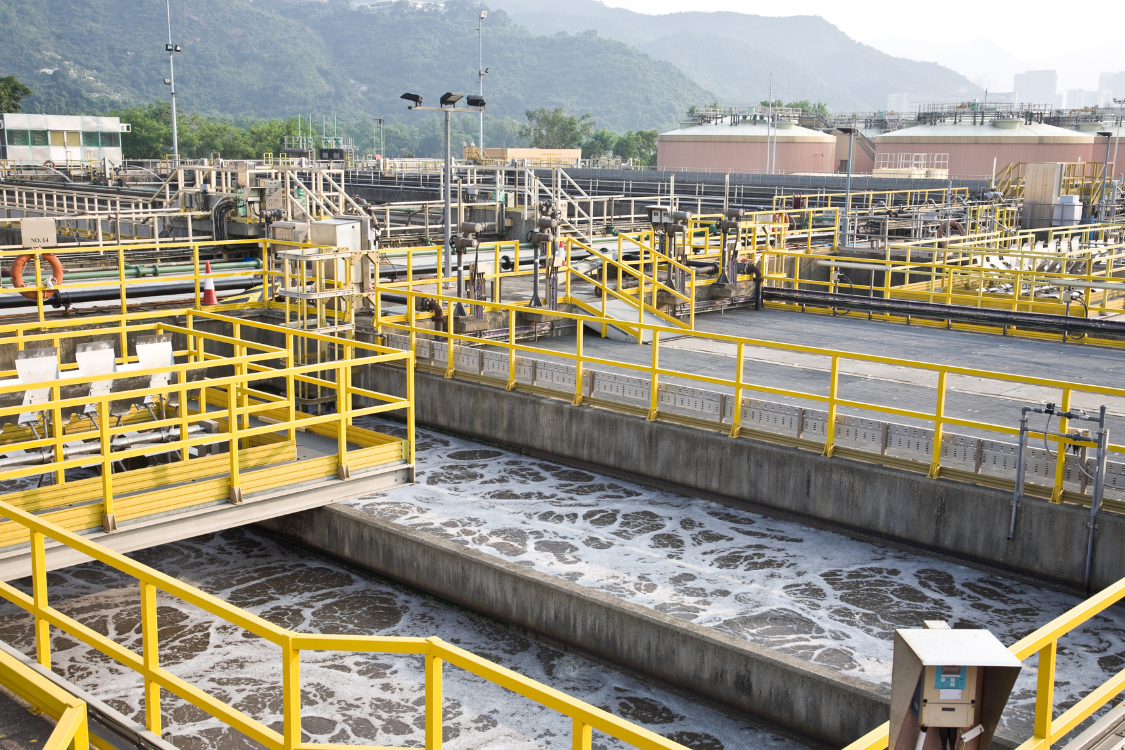How Does A Sewage Treatment Plant Work?

CONTENTS
- Overview of sewage treatment processes
- How sewage treatment plants prevent spills
- Challenges faced by sewage treatment plants
- Technological innovations in sewage treatment
- Comparison of sewage treatment methods
- Frequently asked questions
- Get in touch
Sewage treatment plants are essential installations that purify our wastewater whilst ensuring the community's well-being. They act as spillage prevention and ensure that wastewater pumped back into our systems is safe and free from contaminants.
At ICE Cleaning, we offer sewage spill cleaning services if a large spill or contamination occurs on your property. We can be on-site the same day as your initial call, containing the spill effectively and decontaminating the property to ensure it is safe again.
Read on to learn about the core processes that transform waste into water, why these plants are important, and how they stand on the frontline of environmental protection.
Overview of sewage treatment processes
Sewage treatment is a critical process that turns our wastewater into something that will not harm the environment. Every phase of treatment contributes to purifying our waters, protecting them against contaminants that can cause ecological difficulties.
The first step is screening, where large objects are removed. Following this is sedimentation, allowing solids to settle at the bottom. Lastly, biological processes come into play when bacteria break down pollutants.
This concise glimpse offers insight into the intricate process of wastewater cleaning, highlighting its vital role in maintaining the cleanliness of our local ecosystems.
How sewage treatment plants prevent spills
Sewage treatment plants implement various sophisticated processes designed to purify water and prevent potential spills that could lead to environmental contamination.
Monitoring systems
These monitoring systems constantly assess flow rates and composition of incoming wastewater, enabling timely adjustments in processing operations.
Advanced sensors detect anomalies or overflows within the system, triggering immediate corrective actions. This proactive approach ensures plant operations remain within designated parameters, significantly reducing spill risks.
Containment measures
Physical containment structures are pivotal in spill prevention at sewage treatment facilities. Primary tanks are designed with overflow protection features; secondary containment measures provide an additional layer of security against unintended discharges.
If excess inflow occurs because of heavy rainfall or other unforeseen circumstances, strategically positioned diversion channels redirect flows away from critical areas, preventing potential overspill.
Emergency response protocols
In alignment with stringent regulatory standards, the Environment Agency mandates that all sewage treatment plants have well-defined emergency response protocols for managing spill events effectively.
These protocols include immediate countermeasures aimed at containing spills and long-term strategies for remediation and impact mitigation on surrounding ecosystems.
Challenges faced by sewage treatment plants
Sewage treatment plants grapple with the increasing strain from urban expansion. As cities grow, so does the volume of wastewater needing processing. The surge in demand strains current infrastructure and requires the construction of additional treatment centres.
Climate change adds another layer of complexity, altering rainfall patterns and increasing flooding and spill risks. Adjustments in weather and increased demand often push sewage networks past their limits, causing raw sewage to spill into rivers and lakes.
Ageing infrastructure is another hurdle - many of our sewage facilities are old and struggling to keep up, sometimes causing them not to clean the water as well as they should.
Technological innovations in sewage treatment
Sewage treatment is undergoing a new phase, propelled by technology breakthroughs. These advancements include treating waste more efficiently and turning sewage plants into energy generation and resource recovery plants.
One practice is resource recovery: this involves extracting valuable substances from sewage, like phosphorus and nitrogen, which can be used as fertilisers in agriculture.
One advancement includes the adoption of membrane bioreactors (MBRs). This technology filters out impurities at a microscopic level, resulting in cleaner water and reducing the footprint of treatment facilities.
An equally impressive innovation is the harnessing of anaerobic digestion processes. By breaking down waste without oxygen, these systems treat sewage and produce methane that can be recycled. This process contributes to sustainable energy solutions, reducing the country's carbon footprint.
Comparison of sewage treatment methods
Sewage treatment has evolved significantly, from traditional methods that relied heavily on physical processes to modern techniques harnessing biological and chemical treatments.
Traditional systems were straightforward but less efficient, focusing mainly on sedimentation to remove solids. On the other hand, contemporary approaches like activated sludge and membrane bioreactors offer higher efficiency in pollutant removal.
The effectiveness of these methods varies widely; while conventional treatments achieve basic effluent quality standards, advanced technologies can produce water clean enough for non-potable reuse.
The treatment method is heavily influenced by financial considerations, balancing the upfront costs against potential long-term savings.
Although initial investments in modern systems are higher, they often lead to lower long-term operational costs through energy savings and reduced sludge production.
There is also a lower chance of sewage spills in public areas and workplaces, protecting the public from contaminants and maintaining productivity.
Frequently asked questions
What is the sewage treatment plant?
A sewage treatment plant is a facility that treats wastewater and makes it safe to be released back into water systems.
What's the best sewage treatment plant?
The "best" varies by needs, but plants using advanced technology for energy efficiency and superior pollutant removal are best.
How many wastewater treatment plants are there in the UK?
Around 9,000 facilities dotting the UK landscape work to keep our waterways clean and safe.
What are the 4 types of sewage treatment?
Preliminary, primary, secondary, and tertiary treatments make up the four stages - each crucial for turning waste into reusable water.
Get in touch
For effective sewage spill cleaning services, you can rely on our team at ICE Cleaning. We utilise leading technology and solutions to neutralise sewage and decontaminate an affected area, making your home or business safe again.
To learn more about our sewage spill clean-up services, get in touch with our team today at 0208 066 0360 or enquiries@icecleaning.co.uk. Our team are stationed nationwide across the UK, offering emergency services 24/7, 365 days a year.

Speak with me today,
I’m here to help
By asking you a few questions either via phone or email I can immediately provide a realistic estimation of the cost.

Why choose us?
- Cater to a wide variety of cleaning situations
- Nationwide coverage, available 24/7
- Cater to commercial and domestic clients
- Free survey provided prior to quotation
- Emergency response team
- Offer a bespoke service designed to suit all your needs
- All technicians hold professional health and safety qualifications, including BICSc, IOSH, Dewpoint Professional & Safe Contractor
We’re fully accredited
We place best practise, professional expertise and health and safety at the core of our business. We’re fully compliant with all legal obligations. You can view a list of our accreditations below, or visit our Health & Safety page for more information.











-RGB-small.1707319151.jpg)




















